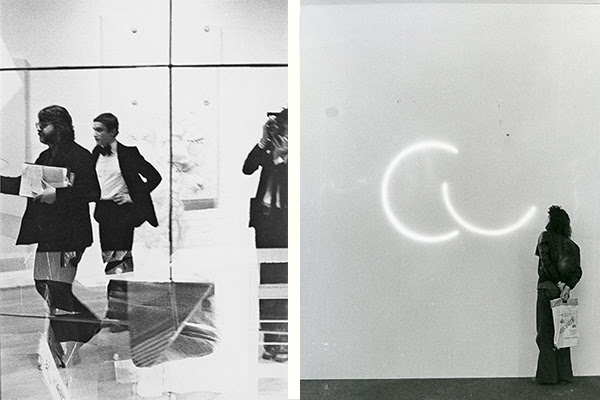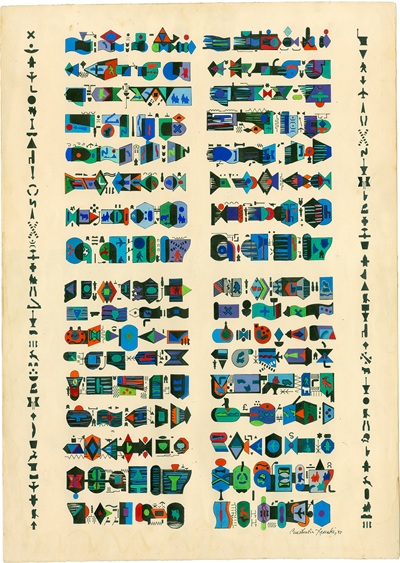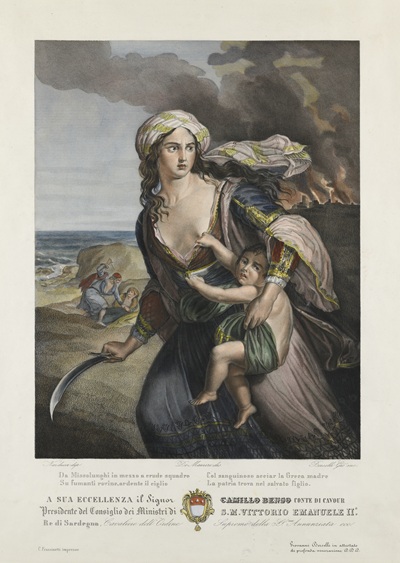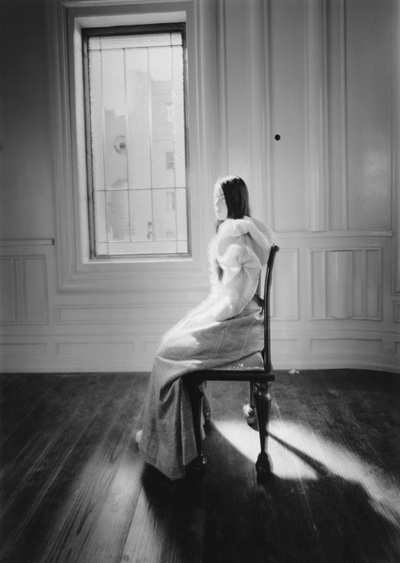
As part of its mission, the National Museum of Contemporary Art, Athens (EMΣT) seeks to cultivate creative practices of memory that resist the prevailing culture of amnesia toward the past. By revisiting pivotal moments in recent history and art history, the Museum highlights events that have shaped Greece’s contemporary cultural landscape.
Within this framework, EMΣT presents a commemorative exhibition marking fifty years since the historically significant Greek Month in London, held between November and December 1975. The exhibition focuses on the visual arts programme of Greek Month, which featured two landmark shows: Four Painters of 20th Century Greece and Eight Artists, Eight Attitudes, Eight Greeks.
These exhibitions were organized by the internationally acclaimed Greek curator Christos M. Joachimides (1932–2017) and Sir Norman Rosenthal, the distinguished British art historian and then Curator and Head of Exhibitions at London’s Institute of Contemporary Arts (ICA). Presented in the British capital as part of a broader cultural initiative, they marked the beginning of renewed discussions on contemporary art and the avant-garde in Greece in the immediate aftermath of the dictatorship.
The Greek Month was modelled after the French and German Months that had preceded it. It was an initiative of the Press Office of the Greek Embassy in London, supported by the National Trust for Greece, with the aim of “presenting to the English public an image of Greece’s contemporary cultural potential, with reference to those sources of the past that continue to influence, in one way or another, intellectual creation in Greece in general.” The event included examples from various forms of intellectual and artistic activity in contemporary Greece: visual arts exhibitions, a Greek Cinema Week with screenings of films by Nikos Koundouros, Michalis Cacoyannis, Theo Angelopoulos, and others, as well as dance, music, and poetry evenings, exhibitions dedicated to George Seferis at the National Book League, the resistance publications during the seven-year dictatorship, modern Greek writers’ readings, and so on.
With regard to the visual arts, the programme of the Greek Month included two exhibitions curated by Joachimides and Rosenthal on 20th-century Greek art. The first, entitled Four Painters of 20th Century Greece, was held at Wildenstein Gallery and featured works by four of the leading representatives of the so-called Greek-centred modernism: Theophilos (c. 1870–1934), Fotis Kontoglou (1895–1965), Nikos Hadjikyriakos-Ghika (1906–1994), and Yannis Tsarouchis (1910–1989). The second, which is the focus of the current exhibition, was titled Eight Artists, Eight Attitudes, Eight Greeks, was held at the Institute of Contemporary Arts (ICA), and presented works by eight contemporary artists, most of whom belonged to the Greek diaspora. As the two curators pointed out in their introductory note to the exhibition catalogue, it was the first time that these two groups of distinguished artists (both based in Greece and abroad) were brought together. The curatorial framework, as described in the accompanying catalogue’s introductory essay, revolved around the relationship of Greek artists to European culture of their time, immediately after the fall of the dictatorship. Other issues raised by the curators included Greece’s distinctive cultural identity, its relationship with the “outside world,” the engagement with Greek reality, the paradox of a glorious heritage and a contemporary role that is less prominent, the dialogue between two different generations confronting similar challenges, and an ongoing reflection on national identity.

On the occasion of the 50th anniversary of this landmark event, an exhibition of artworks, documents and archives – developed from discussions between the curator and Christos Joachimides before his passing – and featuring original archival material presented to the public for the first time, seeks to illuminate both the significance of Joachimides and Rosenthal’s curatorial vision in shaping the notion of a “Greek avant-garde art” and the role of the two exhibitions in the broader political debate on socially engaged artistic practice in the aftermath of the fall of the Greek junta. The exhibition also includes characteristic works by the artists who participated in the ICA exhibition, namely works by Stephen Antonakos (1926-2013), Vlassis Caniaris (1928-2011), Chryssa (1933-2013), Jannis Kounellis (1936-2017), Pavlos (1930-2019), Lucas Samaras (1936-2024), Takis (1925-2019), and Costas Tsoclis (* 1930) – from the EMΣT collection and other Greek collections, which resonate with those originally presented in London in 1975. The exhibition is accompanied by original texts and an illustrated timeline.
Artistic Direction: Katerina Gregos
Administrative-Financial Direction: Athina Ioannou
Curator: Polina Kosmadaki
Assistant Curator & Researcher: Mathilde Skiloyannis
Exhibition Design & Artistic Production: Yannis Arvanitis
Production Coordinator: Anastasia Tsopelaki
Deputy Director of Technical Services: Iro Nikolakea
Conservator: Fotini Alexopoulou
Registrar: Maria Drakou
Lighting: Kostas Svolis, Grigoris Sampanis
Art Handling – Technical Support: Vangelis Filippas, Emilios Petrikis, Vangelis Kiousis
Audiovisual Installation: Makis Faros
Textile Constructions: Bessis Textiles
Transport: Art Lock
Wall Painting: Prime Paintworks EE
Insurance: Karavias Underwriting Agency
Translations: Vasilis Douvitsas
Proofreading: Theophilos Tramboulis, Yiannis Bolis
Subtitles: Videopress
Prints: Sdralis Artworks, Anestis Kyriakidis (Graphicon), NEXT S.A.
Frames: Sdralis Artworks
Communication (EMΣT): Marigo Siakka, Sergio Zalmas (Social Media)
Communication Consultant: Maria Tsolaki
Graphic Design: Iliana Siarga
Exhibition Support: Emmanouela Fourtouni
Intern: Nefeli Stouraiti







Leave A Comment